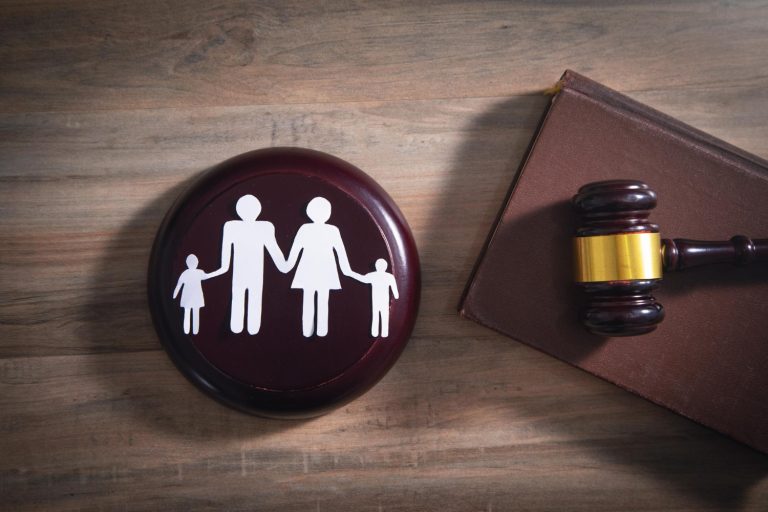When it comes to matters of family law, choosing the right type of court can be a daunting task. Family law issues can range from divorce to child custody, and understanding which court to approach is crucial for effective resolution. At MenduniMartindill Law Firm, we specialize in handling these sensitive cases with the utmost care and expertise. Let me guide you through the complexities of family law courts to ensure you make informed decisions for the well-being of your loved ones.
As stated in the United States Courts website, family law cases are handled by family courts. Family courts are specialized divisions within state court systems that deal with issues like divorce, child custody, and adoption.
Types of Courts Handling Family Law Cases
Family law cases are often managed by specialized family courts dedicated exclusively to matters concerning family relationships and the well-being of individuals within the family unit.
These courts can handle many different issues such as divorce, child custody and visitation, child support, spousal support, and domestic violence.
Family law cases are dealt with by various types of courts, which may differ depending on the area. Generally, there are three main types: family courts, domestic relations courts, and probate courts. Family courts are the most common and handle all family-related matters, including divorce, child custody, adoption, and guardianship. Domestic relations courts focus on divorce, child custody, and visitation. To cut a long story short, probate courts deal with wills, estates, and guardianships.
These courts follow the same basic principles of fairness and justice as other courts but are tailored to address the unique and often emotional issues in family law. Judges in these courts are trained to handle sensitive matters and often use mediation and conflict resolution techniques to help parties come to agreements.
Understanding Family Law Courts
Family law courts determine legal issues that shape the dynamics of family relationships.
These issues can include divorce, child custody, child support, adoption, and domestic violence cases. Family law courts strive to look out for the best interests of any children involved and to ensure fair outcomes for everyone. Decisions are based on state laws, past legal cases, and the details of each situation. Courts may also suggest mediation or counseling to help people agree without going to trial.
Judges in family law courts can make binding decisions on things like dividing property, spousal support, and visitation rights. It is important for people involved in these cases to have a lawyer to help them understand the legal process and defend their rights. Family law courts are essential for settling disputes and guiding families on legal matters.
Which Court Manages Family Law Issues?
Family courts have jurisdiction over emotionally charged cases such as divorce and child custody.
This court handles legal issues related to family matters like divorce, child custody, adoption, and financial support. The main goal of family court is to solve these problems fairly, focusing on what’s best for everyone, especially children. Family court judges can decide on many issues including visitation, dividing property, and spousal support.
Sometimes, the court also offers mediation to help people reach an agreement without going to trial. Family court sessions are usually private to protect the families involved.
Family Court Roles and Responsibilities
Family courts often handle complex cases involving child custody, support, and protective orders, ensuring the best interests of children and families are safeguarded.
Family court handles issues like divorce, child custody, child support, adoption, and domestic violence.
The court’s main job is to give families a fair place to settle their problems. It looks at the law and the specifics of each case to make sure everyone’s voice is heard and to decide what’s best for the kids.
In divorce cases, family court decides how to split assets and debts, and whether one spouse should support the other financially. In basic terms, they also set child custody and visitation schedules to protect the children’s interests.
For child support, the court figures out how much money one parent should give to the other based on both parents’ financial situations. They can also adjust these amounts if needed and make sure payments are made.
In domestic violence cases, the family court provides protection orders and ensures victims get the help they need to stay safe.
Jurisdiction of Family Law Courts
Family law courts have the unique authority to rule on crucial matters involving family relationships and issues, shaping the dynamics of families and impacting lives profoundly.
Family law courts handle a variety of issues like divorce, child custody, support agreements, domestic violence, adoption, and guardianship. These courts make sure to protect the best interests of everyone involved, especially children. They help to settle family disputes, determine legal rights and responsibilities, and enforce court orders.
Family law courts can decide on things like parenting plans, visitation schedules, child support, and spousal support. Fundamentally, they can also deal with property division, prenuptial agreements, and restraining orders in domestic violence cases. The main goal of these courts is to ensure the safety and well-being of family members and to make fair decisions according to the law. In short, family law courts are essential for resolving family conflicts and protecting the rights of individuals in a family.

The Final Word
Family law matters are typically handled by family courts. These specialized courts are equipped to handle cases related to divorce, child custody, adoption, and domestic violence, among others.
What MenduniMartindill is liking is, family courts prioritize the best interests of the family unit, ensuring that legal matters are resolved fairly and justly.






